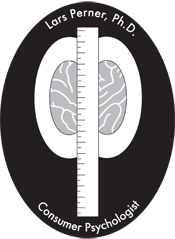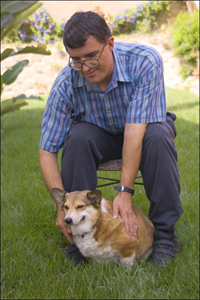
Lars Perner, Ph.D.
Assistant Professor of Clinical Marketing
Department of Marketing, Marshall School of Business
University of Southern California
Los Angeles, CA 90089-0443
Phone: (213) 740-7127 Cell: (760) 412-0154
perner@marshall.usc.edu
http://www.LarsPerner.com
http://www.ConsumerPsychologist.com
Blog: http://delightfulreflections.blogspot.com

|